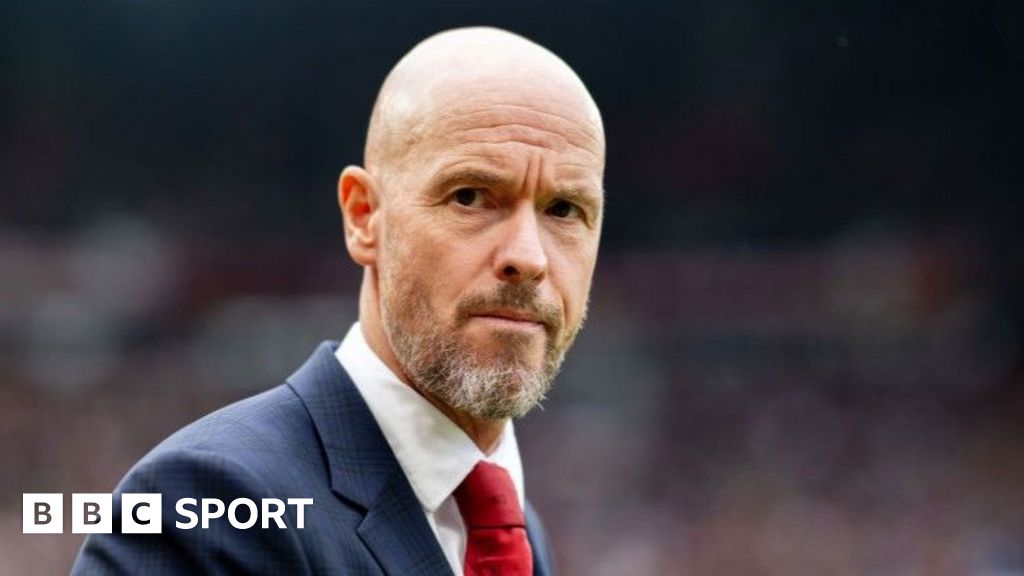Manchester United: Erik ten Hag has club backing despite Liverpool loss

In an extensive chat, Ashworth and Berrada also spoke about a number of other transfer-related issues.
Are you confident in the squad now?
Dan Ashworth:
“I’ve probably done 25 windows now. I don’t think there’s ever been one where we’ve gone, ‘it’s gone absolutely perfectly, we’ve done every single in and every single out’.
“But in the main, with the target positions we wanted to strengthen, the players we’ve brought in and the depth and options Erik has when everybody is fully fit that Erik has, I’m pleased yes.”
How long will it take for you to be consistently successful?
Omar Berrada:
“It’s almost impossible to put a timescale to that question. When you look at the teams who have been successful consistently for many years it’s because they have the right coach, have signed the right players and have the right structure.
“You need to take good decisions consistently for many years to get into a position where you are a financially sustainable club that is competing to win every single competition. That is where we want to be.
“We don’t want to just win one Premier League and be satisfied. We want to create a team that is capable of competing for the Champions League, for the Premier League and for the domestic cups on a consistent basis. To build that, we need to be doing more of what we have done in this window.
“Dan and the team did a fantastic job in the negotiations process. If you make a mistake and you overspend or get a player who can cost you too much, it can set you back. Which is why you need to be able to take those decisions and make the right ones consistently over time to be in a position to win consistently.
“There will be some mistakes that we made, it’s normal there are certain factors we can’t control. But all of the controllables, we are going to put our best foot forward to get it right.”
Have you adopted a different approach to selling players?
Omar Berrada:
“The process for selling is very similar to the process for buying. You have a framework, you know what you are trying to achieve and it has to make sense for the club and the player. If you stay within those parameters and you are decisive, then generally you get it right.
“It is true we have been more open to structuring the contracts in a way that can deliver value for us in the short-term, but also in the future, introducing higher sell-ons and more realistic contingents. We have done that with practically all of the players who have gone out.
“We have also tried to put in place certain policies to protect us in the future. So we have the ability to buy back a player, Willy Kambwala for instance, if he does really well.”
Dan Ashworth:
“Sometimes you have to be quite brave and make decisions that maybe you don’t want to make. You can’t have a bloated squad, and you’re also dealing with players that ultimately want to play football.
“The schedule, especially with the new Europa League format, is pretty punishing. So we want to make sure we’ve got enough depth while keeping the players motivated, and with the thought that they’ve got a chance of playing.
“If you run with too big a squad, it can cause problems. The rules and regulations mean you have to churn. You have to generate money to be able to spend that money back out as well. So the number of one-club players is probably changing. That’s an unintended consequence of the rules and regulations.”
Related
Youth football teams hold minute’s silence for 10-year-old Poppy Atkinson
Youth football teams and grassroots clubs across the country have held a minute’s silence at the start of their games to commemorate a 10-year-old girl who di
Girl’s death sparks minute’s silence at football matches nationwide
10-year-old Poppy Atkinson was killed when she was struck by a car during a training session at Kendal Rugby Club in Cumbria. Clubs from Leeds to London
Liverpool fans’ Uefa claim can be heard in England, judge…
The high court, sitting in Liverpool, heard Uefa had relied upon the principle that English courts will not inquire into the legality of actions by foreign gove
Alan Shearer’s Premier League predictions including Manchester United vs Arsenal
Caption: Alan Shearer?s Premier League predictions credit: Getty / Metro After some impressive results for English sides in Europe the focus is












